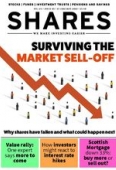Archived article
Please note that tax, investment, pension and ISA rules can change and the information and any views contained in this article may now be inaccurate.
When and how do I pay for charges on investments?

It is common to pay fees when you put money into stocks, funds and bonds via a DIY investment platform. The initial and ongoing fees vary depending on what you own, how you invest and how much money you have invested on the platform.
For example, with AJ Bell Youinvest you will be charged £1.50 each time you buy a fund online but charged £9.95 each time you buy an investment trust, shares in a company, an ETF, gilt or bond. However, this drops to £4.95 if you bought shares on 10 or more occasions in the previous month.
On top of this you will be charged an annual ‘custody’ charge of 0.25% of the value of the investments in your account. If you own shares or investment trusts this amount will be capped at £3.50 a month, whereas if you own funds the charge operates on a sliding scale depending on how much is in your account: 0.25% on the first £250,000 of funds, 0.1% on the next £750,000 of funds, 0.05% on balances between £1 million and £2 million, and nothing above £2 million.
How do you pay for these funds?
The transactional charges are incurred when you buy and sell investments.
You can either include them in the amount you’re choosing to invest or exclude them. This means that if you’re buying £1,000 of a fund you could chose to include the £1.50 charges in this figure, and so buy £998.50 of the investment, with the charge taking up the remainder of your sum. Or you could exclude them, and your total bill would come to £1,001.50 – £1,000 for the investment and £1.50 for the transaction charge.
The custody charge is a little trickier as it is an ongoing charge. It is based on the mid-price of the value of your investments on the last working day of each month. The charge is collected within 20 working days of the end of the previous month – in reality, it means you’ll pay for January’s charges around the middle of February, for example.
This money is collected from the cash in your account, and this is why you should ensure there is some money in cash in the account. However, as cash doesn’t earn much (or any) interest on most investment platforms you want to be sure that you’re not keeping too much in cash. Try to add up roughly what you think your custody charges will be for the next few months and ensure you have enough cash to meet them.
What if I forget and have no available cash?
There’s no mandatory minimum cash balance on your account, so you could have zero cash. That means there would be nothing available from which to collect your custody fees. In this scenario your investment platform would sell some of your holdings in order to recover their fees.
Rather than sell a bit of each holding, they will sell enough units of your largest holding to recover their costs, regardless of whether you’ve made a gain or loss on this investment. By doing this you could end up having investments sold at a loss and you could also incur an additional divestment fee. As you can see, it far more beneficial to ensure you have sufficient cash in your account.
However, if you tend to have more money in your dealing account you can opt for your charges for your ISA, SIPP or Lifetime ISA account to be taken from your dealing account instead. This will only apply to the custody charges and not the transaction fees.
WHEN DO I INCUR CHARGES ON MY INVESTMENTS?
When you buy and sell stocks, investment trusts, ETFs, funds and bonds
When you reinvest dividends
Some platforms have an annual custody charge
There can be foreign exchange fees when you invest in, and receive dividends from, overseas-listed stocks
Sometimes there might be a fee for paper-based applications
Some platforms impose charges if you are transferring assets to another provider
Some platforms have a divestment fee if they have to sell some of your holdings to cover charges
Disclaimer: AJ Bell is the owner of Shares magazine. Daniel Coatsworth who edited this article owns shares in AJ Bell.
Important information:
These articles are provided by Shares magazine which is published by AJ Bell Media, a part of AJ Bell. Shares is not written by AJ Bell.
Shares is provided for your general information and use and is not a personal recommendation to invest. It is not intended to be relied upon by you in making or not making any investment decisions. The investments referred to in these articles will not be suitable for all investors. If in doubt please seek appropriate independent financial advice.
Investors acting on the information in these articles do so at their own risk and AJ Bell Media and its staff do not accept liability for losses suffered by investors as a result of their investment decisions.
 magazine
magazine









